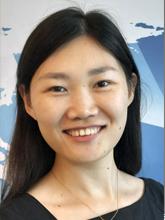- Date: Monday, May 12, 2025
- Time: 11:00am EDT to 12:00pm EDT
Speaker

Xiaoshuang Feng, Ph.D.
Scientist
Cancer Epidemiology Branch
International Agency for Research on Cancer (IARC)
World Health Organization (WHO)
Biography
I am an early-career scientist working in the Risk Assessment and Early Detection (RED) team at the International Agency for Research on Cancer. My work aims to optimize cancer screening strategies, with specific topics including multi-cancer detection and lung cancer risk prediction models and biomarkers. In the area of multi-cancer detection, our work showed that the suitability of stage-based endpoints to replace the endpoint of cancer mortality varies by cancer type, which poses a challenge for multi-cancer screening trials (JAMA 2024). Working in the Lung Cancer Cohort Consortium (LC3), we evaluated the performance of ten lung cancer risk models in Europe (Lancet Digit Health 2024), and across US racial/ethnic groups (in preparation). Also in the LC3, using high-throughput proteomics, we identified 36 proteins for early lung cancer detection (Nat Commun 2023). Integrating proteins with smoking information improved risk discrimination, especially for those are ineligible by current screening criteria (JNCI 2023).
Abstract
Risk-based lung cancer screening is more efficient than categorical eligibility criteria, but concerns have been raised regarding the different performance of available risk models across populations. We analyzed participants from the Lung Cancer Cohort Consortium (LC3) by evaluating the discrimination and calibration of more than 10 available lung cancer prediction models in identifying the future lung cancer cases and deaths. We further modeled the potential additional benefits of implementing risk-based screening within the French national population. In addition, our proteomics work showed the potential improvement in the lung cancer screening efficiency beyond the current risk-based strategy.
